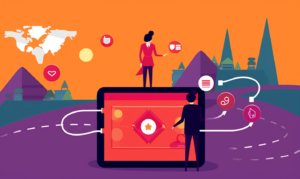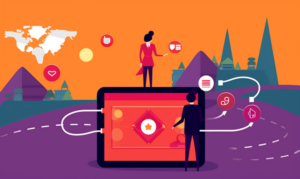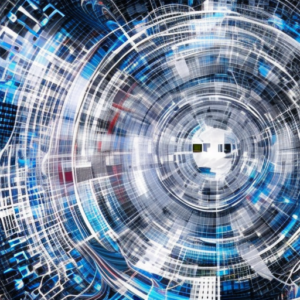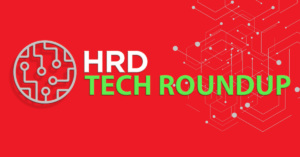Are we on the verge of a HR revolution?
- 6 Min Read
Innovations like artificial intelligence (AI) and machine learning (ML) have become some of the most – if not the most – influential technologies of the day. They have quickly proliferated throughout all walks of life – including our workplaces.
- Author: Ritam Gandhi
- Date published: Mar 11, 2019
- Categories
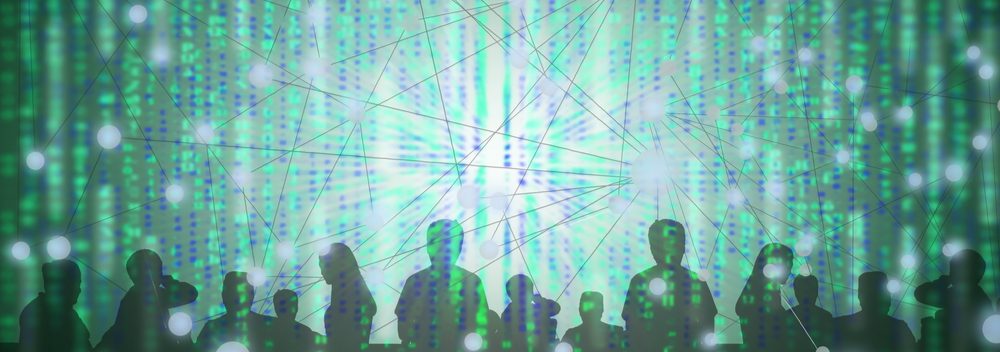
One might think that due to a Hollywood-driven concept of AI (cue drones and robots), some organisations might be sceptical about letting this technology handle important internal tasks. But the reality is a long way removed from science fiction’s representation of AI. Instead, a close collaboration between trained professionals and AI tools can be used to solve problems that HR departments face on a daily basis.
 At the moment, the biggest thing holding organisations back from reaping the benefits of AI is a lack of experience and education, as well as problems of legacy system integration with new technologies. While a massive 72% of respondents in the 2018 Global Human Capital Trends report believe that adopting AI is important for their business, less than a third (31%) feel ready to address it. The underlying sentiments are clear – organisations want AI, but don’t yet have the confidence to make it happen.
At the moment, the biggest thing holding organisations back from reaping the benefits of AI is a lack of experience and education, as well as problems of legacy system integration with new technologies. While a massive 72% of respondents in the 2018 Global Human Capital Trends report believe that adopting AI is important for their business, less than a third (31%) feel ready to address it. The underlying sentiments are clear – organisations want AI, but don’t yet have the confidence to make it happen.
Fortunately, in the world of HR there are countless examples where organisations have leveraged AI tools to their advantage and watched them streamline their operations. And as this technology advances and becomes more accessible, many HR departments will join this trend and begin to reap the benefits of the AI revolution.
AI will support – not replace – HR
We’ve all been fed scare stories that AI and robots will usurp millions of jobs, but the reality is that these technologies have the ability to make us perform better, rather than replace us. In fact, a recent Microsoft UK survey found that a significant 68% of HR professionals believe that automating routine tasks will create time for more meaningful work.
Let’s consider the day-to-day responsibilities of these professionals; from ensuring company compliance with workplace regulations, to processing paperwork like employee payroll and sick leave, many of these tasks are tedious and time-consuming.
Of course, these tasks won’t be going away any time soon, but AI and ML are here to lend a helping hand to streamline the processes. After all, these technologies far outstrip humans’ ability to find, store and process huge amounts of information, so many of these tasks can be automated and thereby delegated to computers.
For instance, a survey of HR executives by IBM recently found that 46% believe that AI will transform their talent acquisition, helping to streamline the process of hiring. Until recently, this process would take weeks, or even months – now, the initial phase can be done in as little as a matter of minutes.
HR professionals’ time can instead be dedicated to assessing relevant candidates, brainstorming new initiatives to manage employee engagement and advising managers on pressing issues like equal opportunities. And importantly, while the human element can be drastically reduced in many tasks – we can never truly replace that unique human touch needed in HR.
How can AI help with recruiting?
Finding the right talent is arguably the most important role of HR professionals; it’s no surprise, then, that HR departments invest significant amounts of time and resources into trawling through countless profiles and applications to find the perfect candidate to fill a vacancy.
So how does technology help here? Rather than relying on individual observations, AI uses analytics to gather and process huge volumes of data; for instance, it can learn the qualifications of employees who are successful in a given role and apply this knowledge to screen and rank candidates who match this specific set of criteria. Moreover, AI tools can quickly filter prospective candidates and discard those that don’t meet the qualifications for the job.
Software like Ideal thereby automate the recruiting task, maximise the quality of hire, while at the same time reducing inherent bias that might affect a human’s recruiting decisions. After all, human HR professionals are naturally not immune to bias, while AI solutions can be programmed to completely disregard someone’s background and focus solely on a person’s competency.
And the benefits of utilising this technology for recruitment are clear – according to Mondal, companies using AI in this way have experienced promising results, such as a 71% decrease in cost per hire and a threefold increase in efficiency.
Employee training
AI can also empower HR professionals to design and deliver tailored training to employees, whether this is to develop skills for their current role, or to prepare them for future responsibilities.
While AI cannot replace the soft skills needed to motivate and challenge employees, it can augment corporate training. Butterfly offers an example of how this works in practice; created with the help of AI, this real-time leadership coaching programme develops managers’ leadership skills based on their team’s feedback and dynamics.
Meanwhile, HR has access to real-time engagement insights, which offer a comprehensive overview of how effective the programme is.
Employee intelligence and coaching software like this has opened doors to new and more effective ways to improve skills and habits, based on specific analytics and feedback from their own workplace. With the training being facilitated through a digital portal, the AI can collect scores of information about the individual; their habits, strengths and weaknesses.
At the same time, HR professionals can keep close tabs on employees’ progress, using these analytics to determine their engagement levels and development – ensuring they can provide helpful support and guidance along the way. Without this data, it would prove difficult to know what changes need to be made to existing training.
Advances like these promise to make the day-to-day tasks of HR professionals significantly easier. And what’s more, we’re only at the beginning of the journey when it comes to exploring how AI can improve our workplaces. In the coming months and years, we can expect to see humans and machines collaborate more closely to take a great weight off HR professionals’ shoulders, enabling them to deliver even greater value into their organisations.
Ritam worked as a consultant for a decade for the likes of Accenture and Bank of America Merrill Lynch before, in 2014, going on to launch Studio Graphene – a firm that specialises in developing blank canvas tech products for small businesses through to large corporates. Working with many startups alongside innovation teams in more established companies, the London-based agency plans, designs and builds astounding tech products for its clients. What’s more, Ritam and the team also use their experience and expertise to help leaders grow their business from ideation, to launch and beyond.



